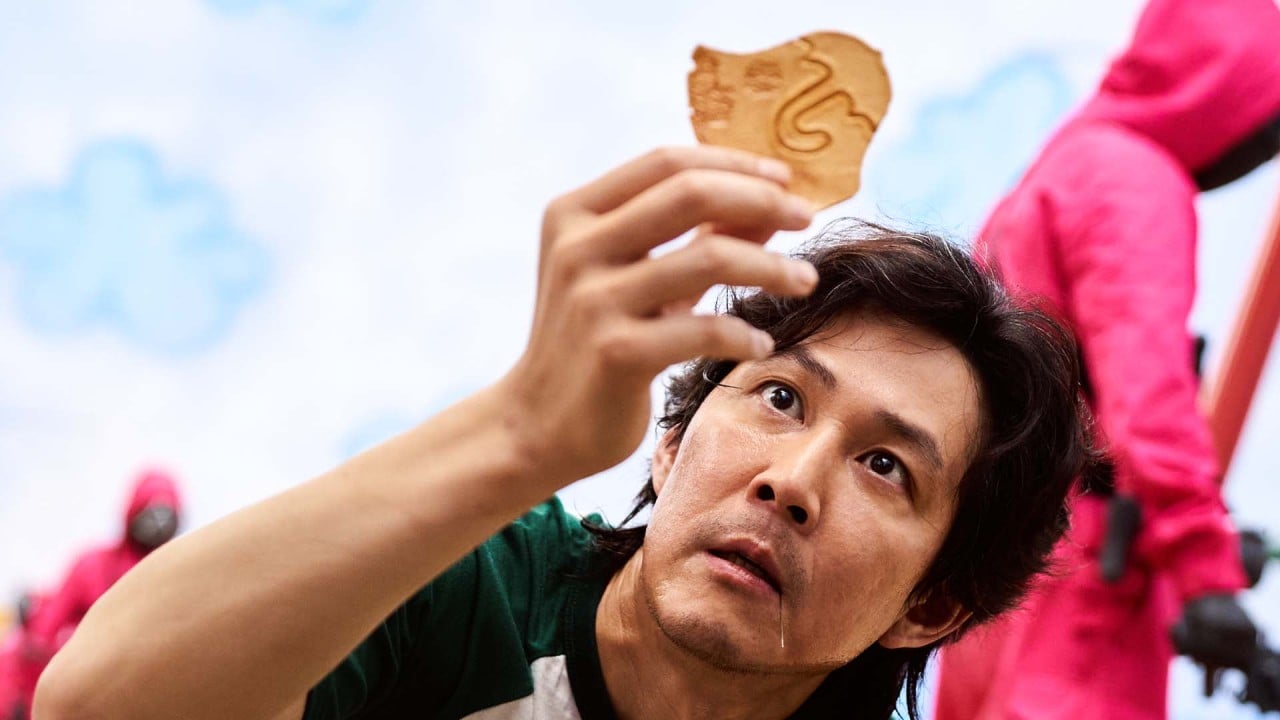
In South Korea, Chinese character on presidential hopeful’s palm creates stir over superstitions as race heats up
- Yoon Suk-yeol of the People Power Party raised eyebrows after appearing on TV with the Chinese character for “king” on his left palm
- Fortune-telling and believing in superstitions remain part of South Korean culture though an analyst says voters don’t want to see this in politics
Former prosecutor general Yoon Suk-yeol, the front runner from the People Power Party (PPP), created a stir when the Chinese character wang, meaning “king”, was seen inscribed on his left palm as he gestured during a series of televised debates with rival potential candidates from the same party.
This sort of inscription is done on the advice of some shamans and elders in the country, usually for students sitting exams or those going for job interviews, for courage and to assist with elocution.
The episode made good fodder for attacks from President Moon Jae-in’s ruling Democratic Party as well as rivals within the PPP, who heaped ridicule on Yoon.
Yoon’s top rival, party mate Hong Joon-pyo, accused him of relying on shamanism to win the debates, and referenced the doctoral degree that Yoon’s wife Kim Keon-hee garnered by presenting a paper focused on fortune telling.
South Korea’s next president? Meet Heo Kyung-young, the ‘levitating’ mystic who claims an IQ of 430 and is offering voters US$85,000
Hong also pointed to news reports that Yoon, 60, was accompanied by a fortune-teller using the I Ching, the Chinese Book of Changes that influenced Confucianism and Taoism, while meeting with political veteran Kim Chong-in to seek on his future courses of political action.
“I urge [Yoon] to give up your talisman-dependent election campaign. These are silly antics that only undermine the country’s political authority,” Hong said.
Yoo Seung-min, third in line for the PPP’s candidacy behind Yoon and Hong, lamented that the party’s nomination race for the presidential election next May had been tainted by “incantations and shamanism”.
“How could we win with a candidate who relies on superstitions?” he wrote in a post on his Facebook page.

Lee So-young, spokesperson of the ruling Democratic Party, sought to capitalise on the situation by drawing parallels to disgraced former president Park Geun-hye and her confidante and friend Choi Soon-sil, both of whom reportedly relied on shamanism and the Chinese concepts of traditional cosmology, or yin yang (loosely translated to darkness and brightness) and wuxing (the five elements).
Both Park and Choi are currently in jail for corruption. Choi was reportedly behind Park’s 2013 inauguration ceremony, which was replete with symbols containing five colours – yellow, blue, white, red, and black – on the basis of the Chinese concepts.
“People remember well what has happened when an unqualified leader made political decisions in accordance with superstitions and incantations,” Lee, the spokesperson, said.
North Korea and South Korea restore cross-border hotline
Lee Jae-myung, the Democratic Party’s top presidential hopeful, said Yoon’s episode reminded him of Choi and gave him “a good laugh”.
“I understand the depth of his desperation,” Lee said of Yoon, “but it would have been better for him to have the inscription under clothes.”
Yoon denied the palm inscription had been intended as a talisman, instead asserting that some older supporters living in his neighbourhood stopped him on his way to the debate and penned in the wang character on his left palm – though he admitted he should have erased it before going on television.
“Politicians love to see fortune-tellers and geomancy experts,” Yoon told journalists.
“Some politicians are rumoured to be wearing red-coloured underwear [for good fortune],” he added, in an indirect swipe at Hong.

03:04
Win a jackpot or die: Netflix’s South Korean thriller ‘Squid Game’ becomes latest global sensation
Hong has previously denied allegations that he wears red underwear, although he has said he likes wearing red ties as the colour is a symbol of “justice and purity” – which happen to start with the same letters as his given name, Joon-pyo.
But Yoon’s side later counter-attacked, pointing out that Hong had changed his own given name from “Pan-pyo” on the advice of a fortune-teller.
Many South Korean politicians are known to secretly consult fortune-tellers during election years, while many are superstitious.
Former president Kim Dae-jung relocated his father’s grave from his hometown in the south to Yongin, near Seoul, in 1997 – two years before he was elected president, after having failed in three previous bids.
Lee Hoi-chang, a former prime minister who was a three-time presidential candidate, moved his father’s grave in 2004 and again in 2007, but did not succeed in getting elected.
South Korea, US envoys to meet after North Korea’s latest missile test
The Korea Economic Daily in 2018 reported that the country’s fortunetelling industry would soon be worth US$3.7 billion, while an Economist piece from the same year pointed out the presence of more than 300,000 fortune-tellers and 150,000 shamans in South Korea.
Related smartphone apps are popular, as are books on the subject – but there are also those who frown on the practice making its way into politics.
“Korean politicians must be aware that most voters have outgrown superstitions, and [the politicians’] reliance on feng shui and fortunetelling is now widely frowned upon,” said Choi Jin, a political commentator.
“It is a shame on the whole country that presidential hopefuls attempt to rely on outdated belief systems, wishing for better chances in elections on the cusp of the fourth industrial revolution.”

